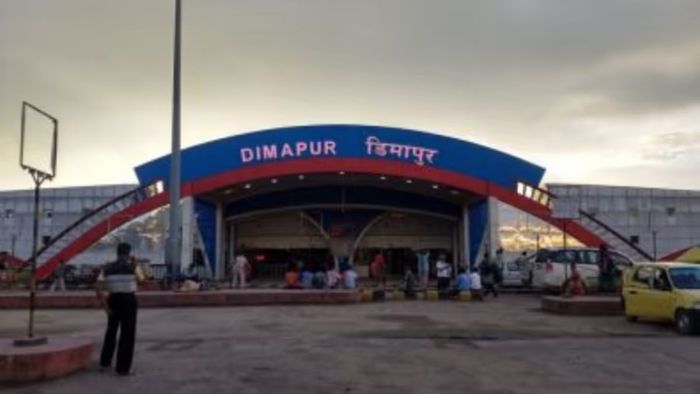Nagaland: Dimapur Railway Station redevelopment stalled over land disputes
The much-anticipated redevelopment of Dimapur Railway Station under the Amrit Bharat Station Scheme faces significant delays due to land encroachment and legal battles.

- Mar 06, 2025,
- Updated Mar 06, 2025, 8:21 PM IST
The much-anticipated redevelopment of Dimapur Railway Station under the Amrit Bharat Station Scheme faces significant delays due to land encroachment and legal battles.
During the supplementary question hour on the third day of the sixth session of the 14th Nagaland Legislative Assembly session, NPP MLA, Nuklutoshi pressed the government on whether land pattas issued with illegal documents had been cancelled and whether any eviction had taken place.
In response, Minister of Health and Family Welfare, P. Paiwang Konyak revealed that ₹283 crores have been allocated for the project in 2024, with work planned in two phases. However, 92 encroachers in Phase 1 and 1,067 in Phase 2, along with 40 pending court cases, have delayed the work progress. Konyak clarified that the land pattas remain valid due to ongoing litigation and no eviction has been carried out.
Expressing frustration over the stalled development, Nuklutoshi suggested diverting the funds to the Tuli constituency, if Dimapur’s project remains unfeasible. To which in defence, Konyak outlined the past government efforts, including compensation discussions with Northeast Frontier Railway (NFR) and a ₹132 crore land resettlement proposal that NFR refused to fund. The minister further warned that if land issues continue to persist on, the project may lose its funding.
Also Read: Nagaland assembly debates free movement restrictions, CM Rio urges Centre to reconsider
The debate further extended to the Amguri-Tuli railway, with BJP Legislator A. Panjung Jamir urging for the relocation of the Tuli railway station closer to town. Konyak confirmed that NFR is willing to extend the railway by 10–12 km but requires the state to bear the ₹109.25 crore construction cost—something the government rejected due to financial constraints.
Chief Minister Neiphiu Rio acknowledged that land disputes continue to obstruct Nagaland’s development, lamenting the misuse of Article 371(A). He stressed on the importance of upgrading Dimapur Railway Station at Nagaland’s only commercial hub and warned that strict measures might be necessary if public cooperation is lacking.
Rio also pushed for broader infrastructure development, including the foothill road, special economic zones, and the "Naga ki Global City" concept in Chathe Valley. He further urged Nagas to move beyond endless discussions and take action, stating, "We are a rich state, but we have decided to remain poor. Let us blame ourselves."